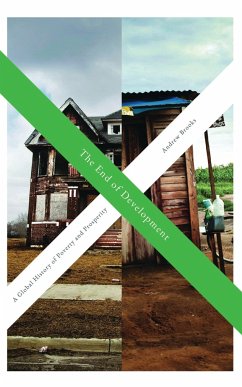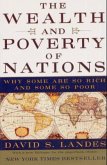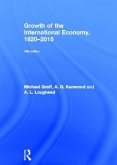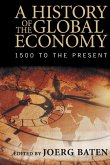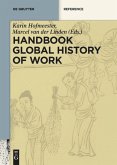Why did some countries grow rich while others remained poor?
Human history unfolded differently across the globe. The world is separated in to places of poverty and prosperity. Tracing the long arc of human history from hunter gatherer societies to the early twenty first century in an argument grounded in a deep understanding of geography, Andrew Brooks rejects popular explanations for the divergence of nations. This accessible and illuminating volume shows how the wealth of 'the West' and poverty of 'the rest' stem not from environmental factors or some unique European cultural, social or technological qualities, but from the expansion of colonialism and the rise of America. Brooks puts the case that international inequality was moulded by capitalist development over the last 500 years.
After the Second World War, international aid projects failed to close the gap between 'developed' and 'developing' nations and millions remain impoverished. Rather than address the root causes of inequality, overseas development assistance exacerbate the problems of an uneven world by imposing crippling debts and destructive neoliberal policies on poor countries. But this flawed form of development is now coming to an end, as the emerging economies of Asia and Africa begin to assert themselves on the world stage.
The End of Development provides a compelling account of how human history unfolded differently in varied regions of the world. Brooks argues that we must now seize the opportunity afforded by today's changing economic geography to transform attitudes towards inequality and to develop radical new approaches to addressing global poverty, as the alternative is to accept that impoverishment is somehow part of the natural order of things.
Human history unfolded differently across the globe. The world is separated in to places of poverty and prosperity. Tracing the long arc of human history from hunter gatherer societies to the early twenty first century in an argument grounded in a deep understanding of geography, Andrew Brooks rejects popular explanations for the divergence of nations. This accessible and illuminating volume shows how the wealth of 'the West' and poverty of 'the rest' stem not from environmental factors or some unique European cultural, social or technological qualities, but from the expansion of colonialism and the rise of America. Brooks puts the case that international inequality was moulded by capitalist development over the last 500 years.
After the Second World War, international aid projects failed to close the gap between 'developed' and 'developing' nations and millions remain impoverished. Rather than address the root causes of inequality, overseas development assistance exacerbate the problems of an uneven world by imposing crippling debts and destructive neoliberal policies on poor countries. But this flawed form of development is now coming to an end, as the emerging economies of Asia and Africa begin to assert themselves on the world stage.
The End of Development provides a compelling account of how human history unfolded differently in varied regions of the world. Brooks argues that we must now seize the opportunity afforded by today's changing economic geography to transform attitudes towards inequality and to develop radical new approaches to addressing global poverty, as the alternative is to accept that impoverishment is somehow part of the natural order of things.
'An ambitious and engaging book, challenging readers to go beyond simple depictions of development success or failure to examine how colonialism and capitalism are implicated in current global economic and social inequalities, and to consider alternative futures.'
Katie Willis, Royal Holloway, University of London
'It is very difficult to say something new about development, but this book does just that, particularly in providing new insights on Africa: its importance in the distant and recent past, the present and into the future. The unusual combination of history and human stories makes for great reading.'
Gustavo Esteva, co-author of The Future of Development: A Radical Manifesto
'What can be done to reduce poverty and spur economic development in areas that have been left behind? Brooks's engaging style and interesting nuggets of political history scattered throughout the chapters dealing with the modern period draw the reader into engaging with the important questions he asks.'
Population and Development Review
'The aid industry and African politics are examined in a holistic and critical manner that is most illuminating ... fits within a genre of accessible economics texts such as those of Joseph Stiglitz and Naomi Klein ... Andrew Brooks has hit the mark.'
New Global Studies
'Succeeds in telling the counter-narrative of 'development' by showing that more prosperity does not mean less poverty ... rich in examples and figures supporting the main argument that inequality is central to capitalist development.'
Society & Natural Resources
Katie Willis, Royal Holloway, University of London
'It is very difficult to say something new about development, but this book does just that, particularly in providing new insights on Africa: its importance in the distant and recent past, the present and into the future. The unusual combination of history and human stories makes for great reading.'
Gustavo Esteva, co-author of The Future of Development: A Radical Manifesto
'What can be done to reduce poverty and spur economic development in areas that have been left behind? Brooks's engaging style and interesting nuggets of political history scattered throughout the chapters dealing with the modern period draw the reader into engaging with the important questions he asks.'
Population and Development Review
'The aid industry and African politics are examined in a holistic and critical manner that is most illuminating ... fits within a genre of accessible economics texts such as those of Joseph Stiglitz and Naomi Klein ... Andrew Brooks has hit the mark.'
New Global Studies
'Succeeds in telling the counter-narrative of 'development' by showing that more prosperity does not mean less poverty ... rich in examples and figures supporting the main argument that inequality is central to capitalist development.'
Society & Natural Resources

